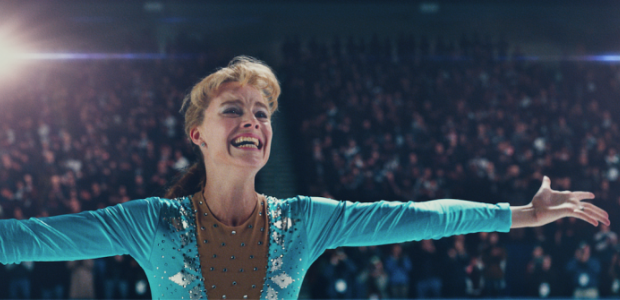Introducing itself as “irony free, wildly contradicting, and totally true”, I, Tonya is a fiercely entertaining exposé on one of America’s most famous yet equally hated personalities in sports history – Tonya Harding. That name not only generated a media frenzy in US championship figure skating, it was also riddled with infamy owing to events that were both outrageous and scandalous.
Contrary to the introduction, the film is indeed a huge irony that asks whether Tonya had any grace at all. And if she did, was it unfairly snatched away by the all-encompassing judge and jury we know as society. But before we get to the film’s first most anticipated moment – the incredible triple-Axel jump which no other American figure skater had previously attempted – we are introduced to Tonya at age 4. She is on the ice with her skates. She is a natural. The ice skating teacher can see that. The teacher also sees that Tonya and her mother are from the wrong side of the tracks. This would prove to be Tonya’s single biggest challenge but also her drive to fulfil her dream of becoming an Olympian.
The second most anticipated moment is what everyone in the film refers to as “the incident”. The narration, nevertheless, through fake interviews or by breaking the fourth-wall, doesn’t detract from the fact that this was the last straw in Tonya’s career as a figure skater. While every sports magazine and TV channel were quick to turn Tonya into a villainous monster, I, Tonya is nuanced by the black comical moments leading up to “the incident”. Instead of answering the question on every viewer’s mind (there’s a pause where she directly addresses this to the audience), the film is at its gripping best when we learn about Tonya’s many personal issues, including domestic and emotional abuse involving her mother and her (now) ex-husband. Between the constant mother-daughter squabbles and love-hate relationship with her husband, Tonya emerges as young woman with true grit rather than the ice skating princess everyone expected her to be.
Sharply written by Steve Rogers (rom-com screenwriter and not Captain America) and directed by Craig Gillespie, this dark satire not only takes a stab at the hideous and vain nature of the sport but also the sacrifice, pain, physical and emotional bruising Tonya endured just to be accepted as any other aspiring figure skater. Lending a wide range of emotions (and even a glint of Harley Quinn), Margot Robbie is at her best as manic Tonya and impressive in every scene. But even as Robbie delivers her best performance to date, Allison Janney as Tonya’s iron-fisted mother is an absolute treat with an unending library of expletives. From her introductory scene to the tune of Cliff Richard’s Devil Woman to messing with Tonya’s head, to shaping her into a champion, Janney’s LaVona Fay Golden is just that – show stealing gold in every scene. Together, Robbie and Janney are the muscle and sinew of this film while subverting a tragic story of a sports star fallen from grace into an unexpected piece of pop culture history.
Rating: 




https://youtu.be/d2iy5y0YjGM
